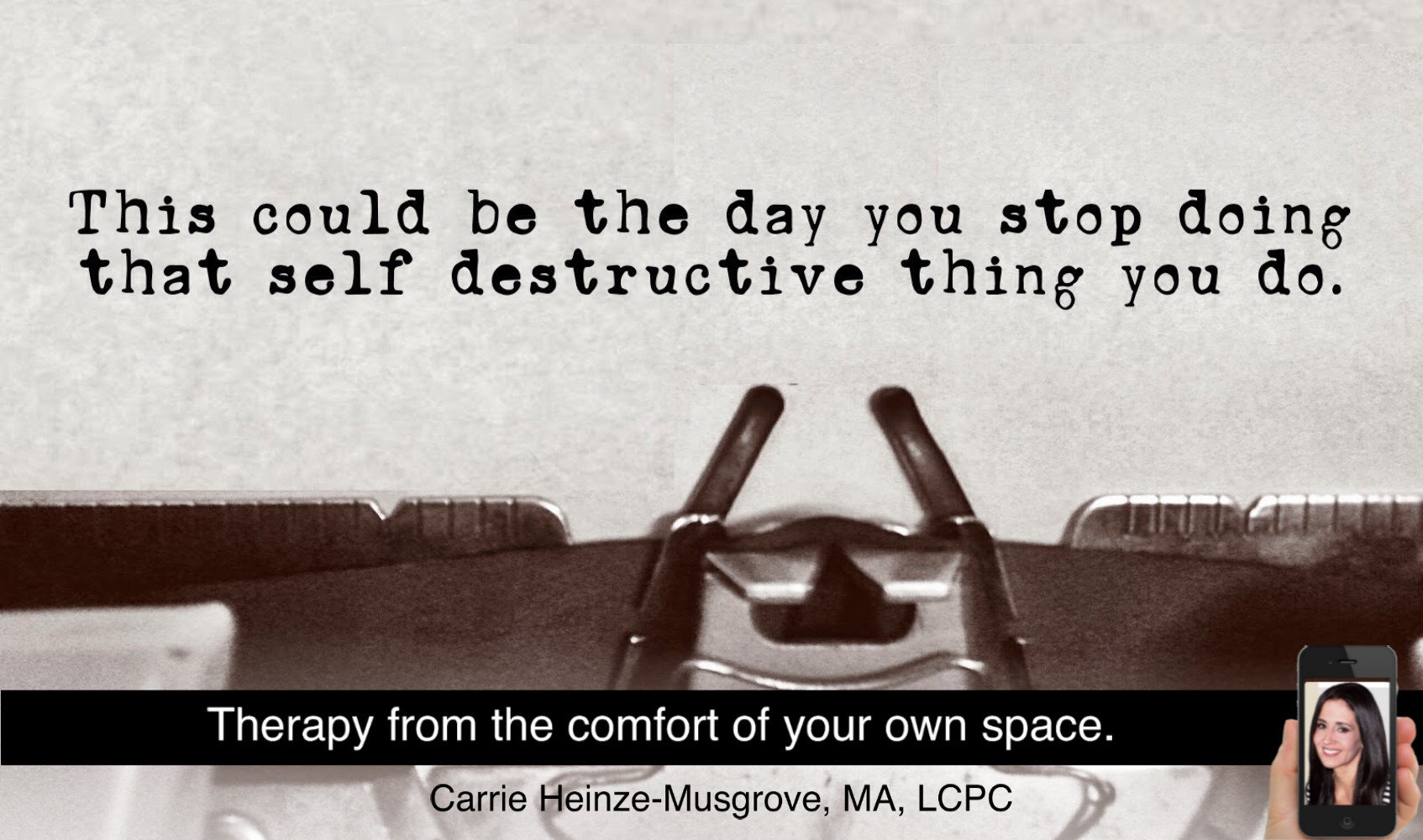Occasional self-sabotage is fairly common. We all say something from time to time that would have been better left unsaid or we accidentally polish off the whole gallon of ice cream.
However, when self-sabotage becomes a pattern, it can interfere not only in your ability to perform at your best, but also in your ability to live a happy, fulfilling and productive life.
Self-destructive behaviors are the life choices we make that negatively impact our minds, bodies or relationships. It is operating in such a manner that does not have our best interest at heart.
It is possible that you are unaware of your self-destructive habits. It is also possible that you know you could do healthier things to feel better, but you are either too depressed to do it, too fearful to change, too comfortable or don’t quite care about the consequences in the moment.
We use self-destructive behavior as coping mechanisms to survive in the moment. Consequences be damned. We take comfort where we can find it.
The following are self-destructive behaviors most commonly associated with depression:
• Codependency
• Procrastination
• Avoiding responsibility
• Overeating to comfort yourself
• Being overly sensitive
• Social isolation
• Compulsive or addictive behaviors
• Poor sleep
• Excessive need for recognition or approval
• Excessive self sacrifice
• Having abusive relationships
• Hiding true feelings
• Unsafe sex
• Letting others run over or take advantage of you
• Not allowing others to help
• Neglecting your health
• Not exercising
• Rejecting others to avoid being rejected
• Self-pity
• Setting yourself up to fail
• Overspending to make you feel better
• Suffering in silence
• Suicidal thoughts, self-harm and self-injury
These behaviors not only interfere with your attempts to change, but they tend to make your problems worse. Every time you try to get control over these behaviors and fail, you have another experience that confirms your own shame and what you think is your “lack of willpower”. You blame yourself and it increases your sense of hopelessness. It is a vicious cycle.
Are you wondering why you continue unhealthy habits that you know will eventually cause permanent damage?
Treatment for self-destructive behaviors focuses on the underlying causes. Therapy involves finding out where the behavior is coming from and identifying the root cause. Many of these behaviors come from either experiencing trauma personally or witnessing it. Pent-up energy comes out as anxiety, depression and risky behaviors. By taking stock in your life, you will see that many patterns with negative outcomes are rooted in self-destructive behaviors.
Carrie






